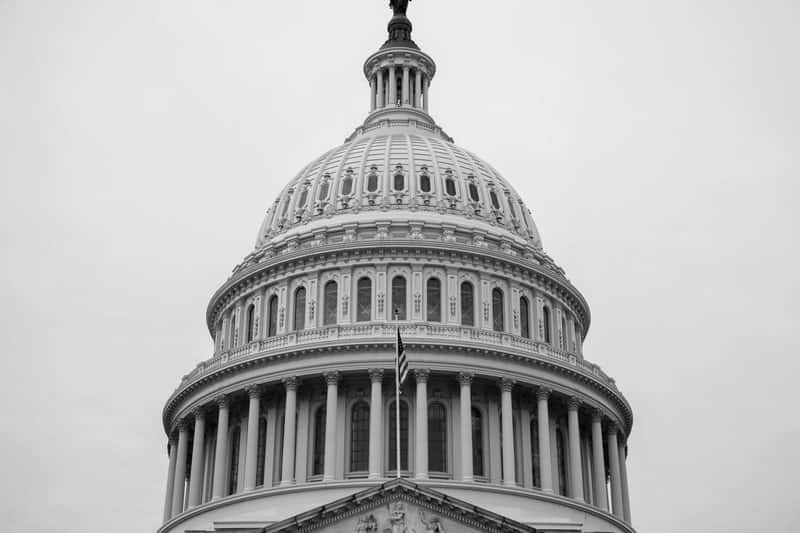
Fred Messner is a student at Harvard Law School.
The House of Representatives released a draft appropriations bill for the Departments of Labor and Health and Human Services for the 2021-22 fiscal year. The bill would allocate $14.7 billion to Labor, a more than $2 billion increase over 2021 and $400 million more than the White House had asked for. Highlights from the bill include a $305 million increase over 2021 for worker protection agencies like OSHA and DoL’s Wage and Hour Division; significant state grants for job training; and a meaningful budget increase for Jobs Corps programs. Although the bill is only at the beginning of the road to passage—it has not even passed through subcommittee markup yet—it represents an ambitious opening bid. The House Appropriations Committee’s subcommittee for Labor, Health and Human Services, Education, and Related Agencies is scheduled to mark up the proposal on Monday with full panel review later this week. Elsewhere on the Hill, Deputy Labor Secretary nominee Julie Su will be eligible today for a floor vote in the Senate to limit debate on her nomination, which would clear the way for a full confirmation vote later on. It is not clear whether this cloture vote will in fact happen today, however, as Su is likely to draw unified opposition from Republicans and will therefore need all 50 Democratic Senators, as well as Vice President Harris, to attend and vote “yes” on the procedural motion.
Motherboard reported this morning on working conditions at GoPuff, an app-based delivery service for “alcohol, snacks, vapes, and other convenience deliveries that is popular among drunk college students.” According to Motherboard, GoPuff exemplifies the worst-of-both-worlds nature of modern “gig” work: the company classifies its drives as “independent contractors,” leaving them uncovered by protections like the statutory minimum wage and occupational safety regulations; at the same time, it exerts the sort of direct supervisory control over the workplace that is the hallmark of true “employee” status. In particular, GoPuff drivers are supervised by managers who can assign them tasks to fill downtime between tasks and fire them if they decline orders—the precise arrangement that other gig companies have avoided because it so clearly removes the “flexibility” that ostensibly justifies the classification of their workers as contractors. GoPuff is, of course, only the latest employer to push the limits of independent contractor classification, but it appears to represent a particularly flagrant manifestation of that trend.
Finally, editorial workers at The Atlantic successfully organized a union this morning. After organizers announced their intention to seek recognition over a month ago, company management agreed to do so voluntarily upon demonstration of a card-check majority. The union won that card check today, with “[a]n overwhelming majority of editorial employees sign[ing] union cards.” The success of The Atlantic Union continues “not a wave, but a movement” of media unionization. As Poynter reports (and supplements with some helpful data visualization), “workers at news publications have launched more than 200 union drives” over the last decade, more than 90% of which have been successful. And at least 21 union drives have kicked off in the first half of 2021 alone. As one Writers Guld executive explained, “I think the industries where we represent writers and producers and so forth are going to continue to surprise us with the way they transform. And as part of that, people will remain eager to be represented.”






Daily News & Commentary
Start your day with our roundup of the latest labor developments. See all
March 5
Colorado judge grants AFSCME’s motion to intervene to defend Colorado’s county employee collective bargaining law; Arizona proposes constitutional amendment to ban teachers unions’ use public resources; NLRB unlikely to use rulemaking to overturn precedent.
March 4
The NLRB and Ex-Cell-O; top aides to Labor Secretary resign; attacks on the Federal Mediation and Conciliation Service
March 3
Texas dismantles contracting program for minorities; NextEra settles ERISA lawsuit; Chipotle beats an age discrimination suit.
March 2
Block lays off over 4,000 workers; H-1B fee data is revealed.
March 1
The NLRB officially rescinds the Biden-era standard for determining joint-employer status; the DOL proposes a rule that would rescind the Biden-era standard for determining independent contractor status; and Walmart pays $100 million for deceiving delivery drivers regarding wages and tips.
February 27
The Ninth Circuit allows Trump to dismantle certain government unions based on national security concerns; and the DOL set to focus enforcement on firms with “outsized market power.”